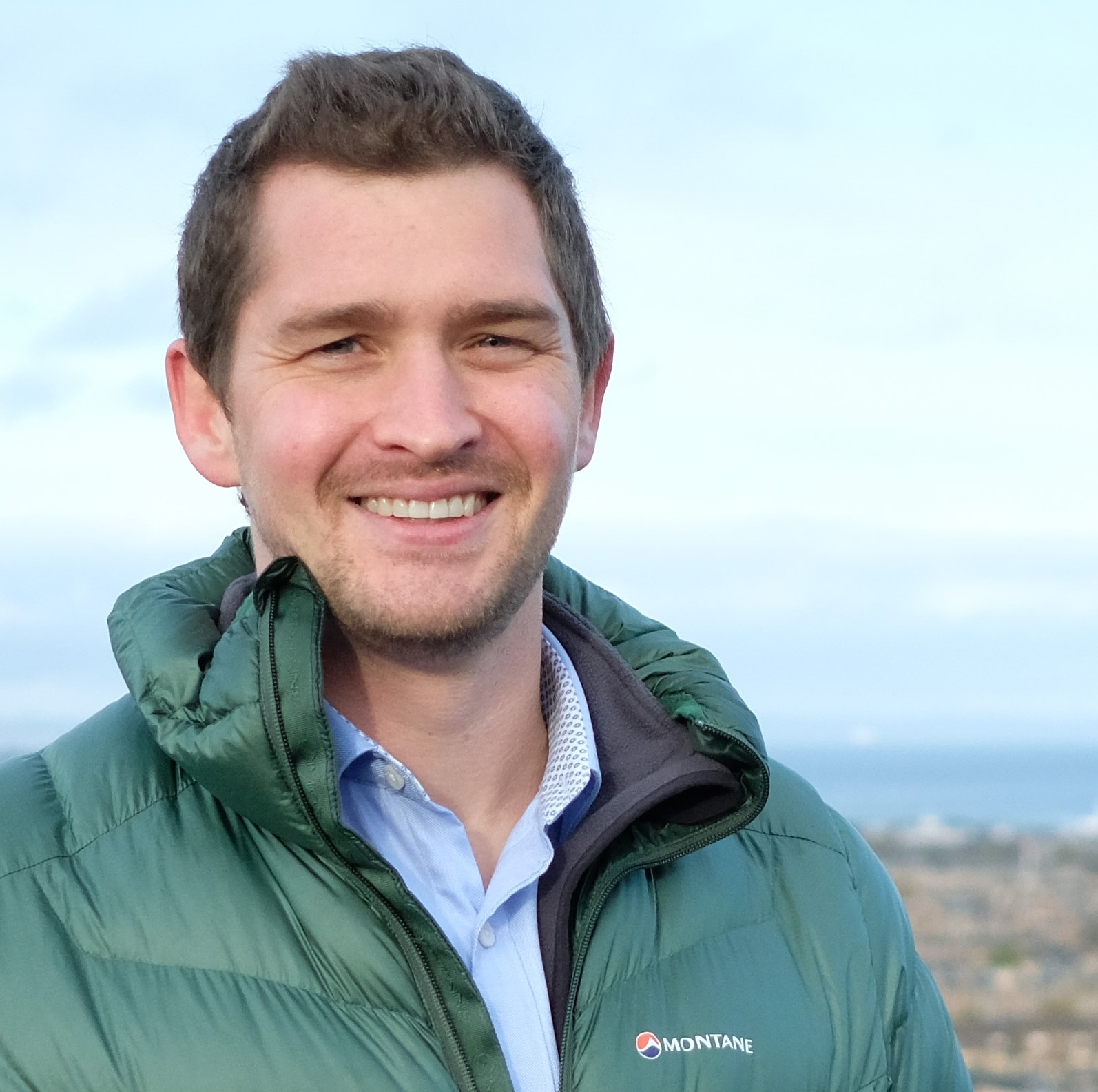After the MBA - a mutually positive relationship
By David Smith - Posted on 31 August 2023
David Smith did his MBA part time and set up his business during his studies. Here, he talks about the benefits of the MBA and how he’s enjoying giving something back.
I graduated from the Hunter Centre for Entrepreneurship at Strathclyde Business School in 2013 and worked as a project manager in a few different companies working on grant funded innovation projects. When I started the MBA, in 2018, I was a programme manager in the Research and Development department at a medium sized company based in Edinburgh. I was working full time, so the part-time MBA course was the best option for me to undertake.
I got to the stage in my career where it had been identified that my progression both within my company, and in my career, would be accelerated and benefit a lot from an MBA qualification – particularly in relation to strategic thinking. The Strathclyde MBA was an opportunity for me to further develop and solidify my learning from my undergraduate degree at Strathclyde Business School and my experience as an innovation project manager over the previous five years. My expectation was to be inspired and to discover new ways of strategically thinking about commercialisation of new products, services and technologies. Another massive benefit of the Strathclyde MBA was the chance to work alongside, and learn from, professionals in other industries. I strongly believed my enrolment in the MBA would immediately open my eyes to new opportunities, ideas and ways of thinking about the programme I was managing at the time. I also expected the MBA and other students would equip me with, firstly, a much stronger network of professional contacts in multiple industries, and secondly, a better equipped toolbox with which to achieve my long-term career goals.
In 2019, my first year doing the part time MBA, the company I worked for closed down the Research and Development department with very little notice. My immediate reaction was to frantically try to get another job before my redundancy pay and savings ran out. However, a few e-mails to colleagues and clients informing them of the news and letting them know it was a pleasure to work with them and that I hoped to cross paths again in the future resulted in one client asking if I could provide them with a project closure report as an independent contractor. At that time, in the midst of dealing with my first redundancy, the feeling was very much “what have I got to lose?” (this was before I had children, and only a 2 bed flat to run!). So, after getting confirmation from the client that they definitely wanted to go ahead with the piece of work, I registered David Smith Consulting Ltd as a business with Companies House, set up a business bank account, and got to work with my first client.
After hearing I wasn’t just going off to get another job my boss, who had also been made redundant, reached out to ask if I - as David Smith Consulting Ltd - wanted to set up a new Joint Venture with his new consultancy to continue to develop and commercialise the software we had been working on in the Research and Development department before it was shut down. Hence, Fuse Mobility Ltd, a joint venture between David Smith Consulting, my old boss’ new consultancy, and a software development team we had subcontracted work to whilst working at the previous company, was also born one month after incorporating David Smith Consulting Ltd. It is still going strong today having turned over £1 million since its incorporation in 2019.
David Smith Consulting is now a Project Management and Innovation Consultancy specialising in transport and technology working with public sector and private sector clients to help them develop their innovations in transport.
So, in the grand scheme of things, I had a very forgiving start to setting up David Smith Consulting. However, it wasn’t without some problems which had to be overcome: the client was a large multi-national and my newly incorporated consultancy wasn’t able to get onto their supplier framework as it had no financial history. Thankfully, the same software development company we set up the Fuse Mobility joint venture with offered to front the contract, as a more established company that could pass the supplier framework requirements, to enable my new consultancy to deliver its first piece of work.
Something which stuck in my head from my Business Enterprise undergraduate course was a lecture which talked about the times when opportunity meets an ability to do something about it. In my case, I was in the position of having the ability to work as an independent project manager when the opportunity to work with my first client presented itself. That ability was a factor of many things, including a bit of experience from my short career as a project manager, but probably more so my lack of a full time permanent job (having just been made redundant) and lack of family commitments at that time. Having done the undergraduate degree I chose (entrepreneurship), I certainly always had an inkling of wanting to set up a business of my own ‘someday’. So, when the opportunities of working with my first client, and being invited to set up Fuse Mobility, presented themselves, I was in the position to do something about them.
My advice to someone thinking of setting up their own business is to always be in a position of ability - and that includes having a little bit of money built up to support yourself and your business in the early stages – so that when an opportunity arises, you will be able to do something about it.
Having your own business, the feeling you get when you hear back that you’ve won a bid, a contract or some grant funding (for your company, or a client’s organisation) is just sensational. Most recently, David Smith Consulting has secured a second round of funding from Innovate UK to develop a commute planning and emissions calculation software tool for organisations who have to report on, and reduce, their scope 3 emissions. It marks a new stage for David Smith Consulting taking on its own research and development projects on top of continuing to help clients and build up Fuse Mobility. Again, this was an opportunity which I was able to do something about by pulling on my experience and drawing on some of my savings to put together a competent and match-funded bid for the funding.
Something that became so apparent doing the MBA after setting up my own companies, is that every subject on the MBA becomes much more relevant. When I was employed, I had access to a finance manager, I had access to a marketing team etc so I didn’t really have to know all that much about those areas other than how to work with them. But when you’re setting up your own company, you become the finance manager, the marketing manager, the sales manager and everything else in between. Therefore, every class on the MBA gave me something that I could personally use in my ‘job’.
I’m still coming back to the business school to make the most of the great post-graduate elective opportunities. I treat them as continuous personal development as you don’t really get such a thing as internal training days when you work for yourself! This year I signed up to the contract negotiation elective which was absolutely fantastic. A very practical course which covered the formation of, negotiation of, and common issues with, commercial contracts: something you do have to lead on without the ready aid of a contracts team or an in-house lawyer when it’s your own business. It was a very useful course, some lessons from which I was able to utilise the very next week when re-negotiating a contract with one of our clients at Fuse Mobility.
Throughout my time at the business school as a student, both undergraduate and MBA, I got involved in many real world projects with companies in Scotland. I gained a lot from those experiences and I have been very keen since to be involved as a client on projects at the business school, having now sponsored projects for three sets of students (one in my previous job and two with Fuse Mobility) since I finished my undergrad. Now, after securing the second round of funding from Innovate UK as David Smith Consulting, I wanted to get some external market research, and challenge, on the market for the commute planning and emission calculation software. Thus, I put forward the project for an MBA candidate at Strathclyde to sink their teeth into. I’m hoping for the MBA candidate to dedicate the time needed to fully get a pulse on the potential market in a structured way, and for them to bring their own experience from their career and studies into their recommendations on route to market and growth strategy.
Continuing the SBS relationship is so positive – being an MBA alum and benefiting from the electives offered post-graduation is a real bonus and I’m delighted I can give something back through offering an MBA project to the current students.










